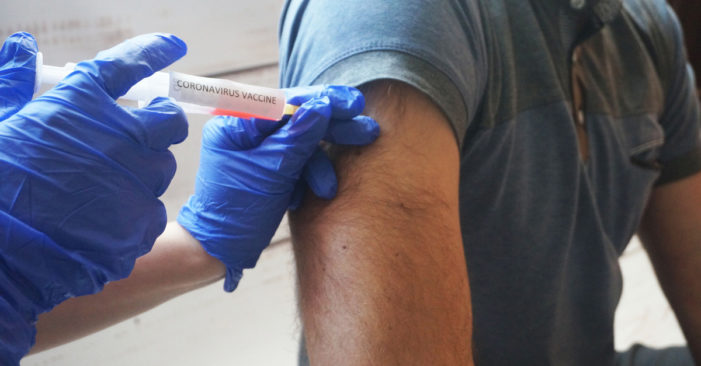By BBC
WHO chief Dr Tedros Adhanom Ghebreyesus said the number of cases outside China had increased 13-fold over the past two weeks. He said he was “deeply concerned” by “alarming levels of inaction” over the virus.
A pandemic is a disease that is spreading in multiple countries around the world at the same time. However, Dr Tedros said that calling the outbreak a pandemic did not mean the WHO was changing its advice about what countries should do.
“Several countries have demonstrated that this virus can be suppressed and controlled,” he said. “The challenge for many countries who are now dealing with large clusters or community transmission is not whether they can do the same – it’s whether they will.”
“We’re in this together to do the right things with calm and protect the citizens of the world. It’s doable,” he said.
Why is it being called a pandemic now?
By Philippa Roxby, BBC Health
The use of the p-word by the WHO to describe the global spread of this new coronavirus is not a huge surprise.
Up until now, it has talked merely of the “threat” or the “potential” for a pandemic. But with cases in more than 100 countries, and increasing numbers not linked to travel, the language has changed.
The WHO no longer ‘declares’ a pandemic the way it used to, so this is as official as it gets. Yet this doesn’t mean the pandemic cannot be controlled, it explains.
But the WHO is not changing what it’s doing or the threat level of the virus. What the use of the word “pandemic” highlights is the importance of countries around the world taking urgent action to respond to their own outbreaks – because now it’s everyone’s responsibility to turn the tide on the virus. Earlier, Germany’s Chancellor Angela Merkel warned that up to 70% of the country’s population – some 58 million people – could contract the coronavirus. She said since there was no known cure, the focus would fall on slowing the spread of the virus. “It’s about winning time,” she said.
Some German virologists dispute the high figure. Former federal government adviser on disease control, Prof Alexander Kekulé, told German media he saw a worst-case scenario of 40,000 cases. The number of confirmed cases in Germany has risen to 1,567 from 1,296, the Koch Institute for infectious diseases said.
In Italy, where there are more than 12,000 confirmed cases, Italian Prime Minister Giuseppe Conte has announced the closure of schools, gyms, museums, nightclubs and other venues across the country.
On Wednesday, Italian health officials said the death toll there had risen to 827 from 631. Nearly 900 people with the virus in Italy were in intensive care, the WHO’s emergencies head Michael Ryan said.
Dr Ryan said the situation in Iran – where there were 354 deaths among 9,000 cases – was “very serious”. The WHO had sent 40,000 testing kits to Iran but there was still a shortage of ventilators and oxygen.
“Iran and Italy are suffering now but I guarantee you other countries will be in that situation very soon,” he said.
What else is happening?
France said there had been 48 deaths in the country, an increase of 15 from Tuesday. There are 2,281 confirmed cases. Coronavirus-linked restrictions have been extended to two more areas, France’s health minister said.
In the western US, Washington state is banning some large gatherings in certain areas and has told all school districts to prepare for possible closures in the coming days. The governor of Seattle’s King County said he expected a serious coronavirus outbreak within weeks.
In the eastern US, New York’s governor announced that troops would be sent into New Rochelle, in an attempt to contain an outbreak of the virus, as the total number of US cases passed 1,000 on Wednesday.
A one-mile (1.6km) containment zone was in force around the town north of Manhattan. Some individuals have been quarantined.
A number of countries have imposed sweeping travel restrictions. India has suspended most visas for foreigners until 15 April. Guatemala is banning European citizens from entering from Thursday. Music festivals and other major events in the US, including Coachella festival in California, have been cancelled or postponed. The E3 gaming show set for Los Angeles in June is among those cancelled. Thousands of flights have been cancelled worldwide as airlines struggle to cope with a slump in demand.
A UK health minister, Nadine Dorries, said she had tested positive for coronavirus and was self-isolating at home.
Several countries – including Sweden and Bulgaria, as well as the Republic of Ireland – have recorded their first deaths, while the number of confirmed cases in Qatar jumped from 24 to 262.
China – where the virus was first detected – has seen a total of 80,754 confirmed cases and 3,136 deaths. But it recorded its lowest number of new infections, just 19, on Tuesday.

